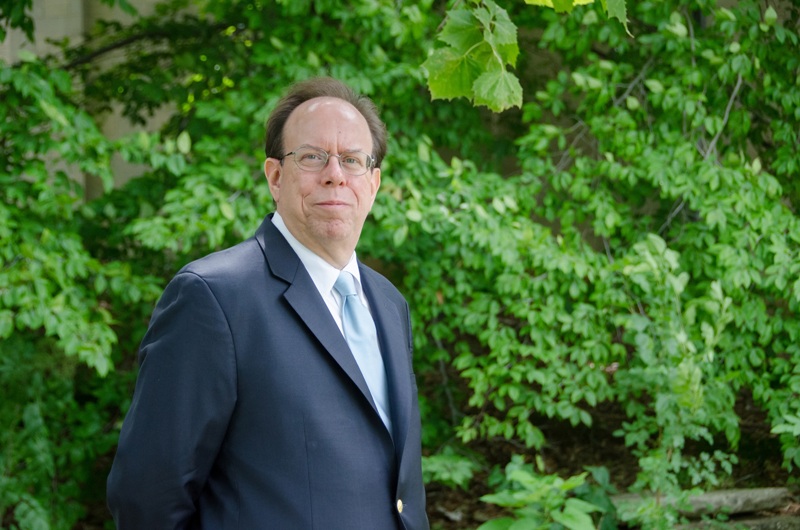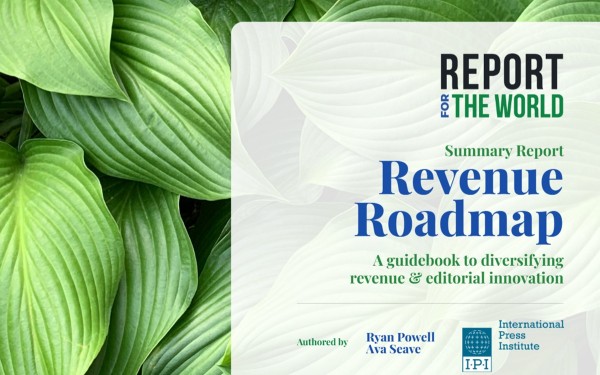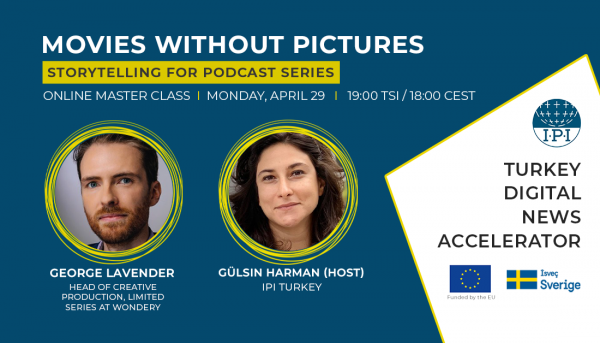Dr. Anthony Fargo is the inaugural director of the Center for International Media Law and Policy Studies (CIMLAPS) at Indiana University (IU) – Bloomington, a new research centre that aims to analyse legal protection for media rights around the globe.
The Center, part of IU’s Media School, where Fargo has worked since 2004, also aims to give IU students hands-on experience in the fight for media freedom. Thanks to a scholarship programme, each year the Center offers students the opportunity to work or intern with media freedom organisations, including the International Press Institute (IPI). IPI has welcomed IU journalism students as interns for the past three summers in its Vienna Secretariat, where students learn the ins-and-outs of monitoring press freedom violations and sharpen their own journalistic skills.
IPI Contributor Annie Mose, an IPI-IU intern in summer 2016, recently spoke with Fargo, an IPI member, about the internship programme as well as his plans for the future of CIMLAPS.
IPI: Professor Fargo, why should students care about press freedom?
Fargo: The media serve a vital function in all countries that are either democratic or strive to be democratic in helping to inform the public about what is going on, not just in government but in society as a whole. In order to do that job effectively, the media have to be able to exercise as much independent judgment as they can with as little government interference as possible.
Students should care about press freedom because without it we don’t get a very clear sense of what’s actually happening in the world, which can lead to all sorts of misunderstandings about how the world works and how different cultures view their relationships with one another and with the U.S. as well.
Another important factor to consider, of course, is the Internet, which has made the idea of a ‘global village’ possible. We can communicate with people all over the world fairly quickly, in great detail and using text, video and audio.
The extent to which that communication is possible and effective, however, depends largely on how free the media are. Laws that affect press freedom generally also affect Internet freedom. These laws often migrate to whatever medium of communication is being used, and certainly we’ve seen numerous examples – the Arab Spring uprisings, for example – where people in times of crisis have turned to the Internet to communicate with one another, to find out what’s going on before the institutionalised media cover it.
So it’s important for students to know that press freedom doesn’t just matter for the institutionalised media, because laws that affect media also affect freedom of expression for the rest of us.
IPI: Tell us about the Center for International Media Law and Policy Studies.
Fargo: The Center was created in 2012 and has several different missions. The primary mission is to support and create research about international media law issues.
Secondly, we also wanted the Center to be a place that students could use. One of the ways we did that was to reach out to various press freedom organisations, including IPI, to set up opportunities for students to learn more about what they do and offer assistance to those organisations, many of which are surviving on shoestring budgets and can’t afford to hire as much staff as they probably need. The internship program we’ve set up with IPI is part of a larger goal of ours to set up such internships with other organisations around the world as well.
The third mission of the Center, which we haven’t so far been able to do as much with as we might like, is to offer possibilities for faculty to work in particular in developing countries on the training of journalists, either through other universities or freestanding programmes. We haven’t quite gotten that off the ground yet but that’s something we still hope to do.
In practical terms, the Center exists as a unit of the Media School. I serve as the director, and we have a number of affiliate faculty members who share in the research interests. We also have 16 advisory board members from around the world. Many of these are IU alums or otherwise connected with IU, but some are not.
IPI: What work has the Center done so far to advance press freedom?
Fargo: We have produced, myself with some graduate students, a number of reports for IPI. For example, we did a report on the extent to which criminal libel still exists in the U.S. and why it is largely a dead letter at this point. We also produced some reports that specifically looked at the strengths and weaknesses of specific countries’ criminal libel laws and the extent to which those laws seem to be in contradiction to international standards on freedom of expression.
More recently, we did a report looking at the law regarding anonymity, particularly as it relates to Internet-based communication. We often communicate through usernames and pseudonyms, and we looked at the extent to which your ability to do that allows you to communicate something that would be unpopular or that you wouldn’t communicate if you had to attach your name to it. We looked at the extent to which the ability to be anonymous is threatened by laws both in the U.S. and in other parts of the world.
IPI: How do you plan to develop the Center? What kind of projects do you want to pursue?
Fargo: The Center was envisioned as a place that would be a facilitator for people who wanted to team-up with IU faculty or IU graduate students to do funded research. That is still our aim, although it’s been harder than it sounded, given the challenge of securing research grants.
Our strategy right now is to develop projects that the Center can take the lead in, define the project and then look for people or departments who might be willing to join. We’re working on a number of ideas right now, some of which are still embryonic at this point, but there are a lot of issues we’d like to look into.
Another goal that we have down the road is to expand our work beyond IPI to other press freedom organisations. We recently established a scholarship, the International Press Freedom Scholarship, to help defray the costs for students of travelling overseas to work with press freedom organisations. Students who have interned with IPI got the first chance to benefit from the funding, but it will be open to students who would like to intern elsewhere as well. Now that we have initial gift in place, we’ll be looking to expand the funding even further.
IPI: What would you hope that a student who participates in a press freedom internship takes away from the experience?
Fargo: Well, I hope primarily that he or she comes back with a better understanding of how press freedom operates worldwide, not just in the United States. Press freedom organisations like IPI spend a great deal of time dealing with crises affecting the media in parts of the world that we don’t think about often enough.
I hope that students come back with a broader understanding of press freedom and the perspective that, whereas we take perhaps press freedom for granted in the U.S., it is a very precious commodity in other parts of the world.
IPI: In terms of the Center’s work, what are you most proud of so far?
Fargo: The research we did on criminal libel, especially our critiques of national legislation, has had influence on helping change laws. It’s very gratifying to be able to contribute to what I think was a very worthy campaign to point out that criminal libel laws are sort of a relic of the past, when saying the wrong thing could get you challenged to a duel. That’s not really how modern societies operate anymore.
It’s funny, when you start a center like this, as a faculty member, the thing you get really excited about is all the research you might be able to produce and all the collaborations you might be able to undertake with other faculty and graduate students. It turns out that the thing that’s been most rewarding for me personally so far, and for the Centre, has been the internship programme. It’s been a lot of fun watching students fly off to Vienna and come back with a completely new worldview. I’m very proud of that.
This interview has been edited and condensed.



